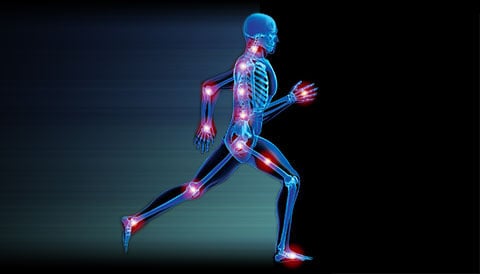New Year, No Pain. Helpful Pain Management Tips From Your Orthopedic Doctor.


When you suffer from orthopedic pain – your only New Year’s resolution may be to become pain-free for the new year. Pain management is not a specific science and it is sometimes challenging to diagnose.
For an enjoyable start to the year ahead, it is important for you to work with your orthopedic doctor to get your pain under control. For some, fighting chronic pain can be a lifelong struggle.
Pain Affects Your Daily Life
Pain is your body’s way of letting you know something is wrong. It is difficult to manage daily activities when pain is the primary thing on your mind. If you are one of the millions who suffer from chronic pain – it is important for you to understand how it affects your outlook on life, how it affects the way you think and your ability to function. Pain can alter your quality of life and keep you from doing the things you enjoy.

Chronic pain can cause a person to lose time from work, and interfere with physical, family and social activities. It can put an emotional strain – both on the person who suffers from the pain as well as those close to them. Over time, chronic pain is tiring and may lead to depression and emotional upset.
Your Chronic Pain
Chronic pain can be mild and merely annoying to being so severe that it alters how you live your life. Chronic pain is not a normal condition of aging, though it is common in many older adults with long-term illnesses such as arthritis.
 The cause of chronic pain is sometimes difficult to determine. Chronic pain can be linked to a definite cause such as degenerative disc disease, arthritis or spinal stenosis. Chronic pain may begin following an injury or illness – pain may remain due to damaged nerves. Other causes of pain - such as pain from fibromyalgia or nerve pain may be more difficult to diagnosis. In some instances, there may not be a known cause of a person’s chronic pain.
The cause of chronic pain is sometimes difficult to determine. Chronic pain can be linked to a definite cause such as degenerative disc disease, arthritis or spinal stenosis. Chronic pain may begin following an injury or illness – pain may remain due to damaged nerves. Other causes of pain - such as pain from fibromyalgia or nerve pain may be more difficult to diagnosis. In some instances, there may not be a known cause of a person’s chronic pain.
Symptoms of Chronic Pain
There are several symptoms or types of chronic pain. Pain is considered chronic if it lasts for three months or longer. It is important to pay attention to the level of pain you are experiencing and notice if there are any dramatic changes to the intensity or variation in the type of pain you are having. Being aware of your pain and coping with it - without making it the entire focus of your life is a goal worthy of a New Year’s resolution – any time of year.
- Aching
- Burning
- Difficulty sleeping
- Electrical
- Shooting
- Soreness
- Stiffness
- Tightness
Whichever way your chronic pain manifests itself, there are ways that it can be managed to allow you to lead a more productive and comfortable life. However, you can't do it alone - your orthopedic doctor will diagnose and offer treatment options that will help decrease your level of pain.
How Chronic Pain Can Be Treated?
Treating chronic pain can be challenging. Your doctor may recommend more than one type of treatment and even combinations of treatments in order for your pain to be managed well. Reducing your pain and increasing your ability to function are the goals of your treatment.

Mild or intermittent pain can usually be treated successfully with over-the-counter medications such as ibuprofen or acetaminophen. These medicines (as with all medications) should be used wisely and with your doctor’s recommendation.
Whatever medical condition is causing your pain, there are complementary therapies that can help you live more comfortably.
- Acupuncture
- Massage
- Yoga
Acupuncture. Acupuncture is an ancient Chinese healing art that may help in managing chronic pain. An acupuncture treatment involves placing very small, hollow needles, heat, or pressure to certain places on your skin.
Massage. Who doesn’t enjoy a good massage? If you suffer from chronic pain, an experienced massage therapist may be able to help. There are various methods of massage that can give you temporary relief as well as decrease your level of stress.
Yoga. Yoga helps strengthen your core and stretch muscles and ligaments. It also teaches relaxation strategies and ways to keep your focus away from your pain.
Any type of exercise or treatment that is new to you should first be approved by your orthopedic doctor.
If you suffer from chronic pain – your orthopedic doctor will be able to recommend the right treatment or combination of treatments that are right for you. He or she will determine the most effective methods of treatment in relationship to the underlying cause of your pain. Getting all of the information you can about chronic pain is the best way to manage it. Educating yourself with the help of your orthopedic doctor will help you understand what is causing your pain and how you can best live with it.
Contact us today to schedule a consultation with an orthopedic specialist!


